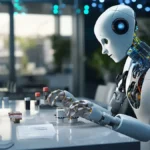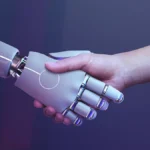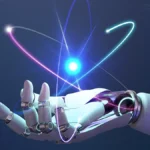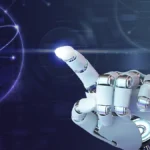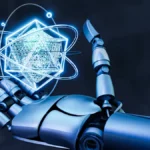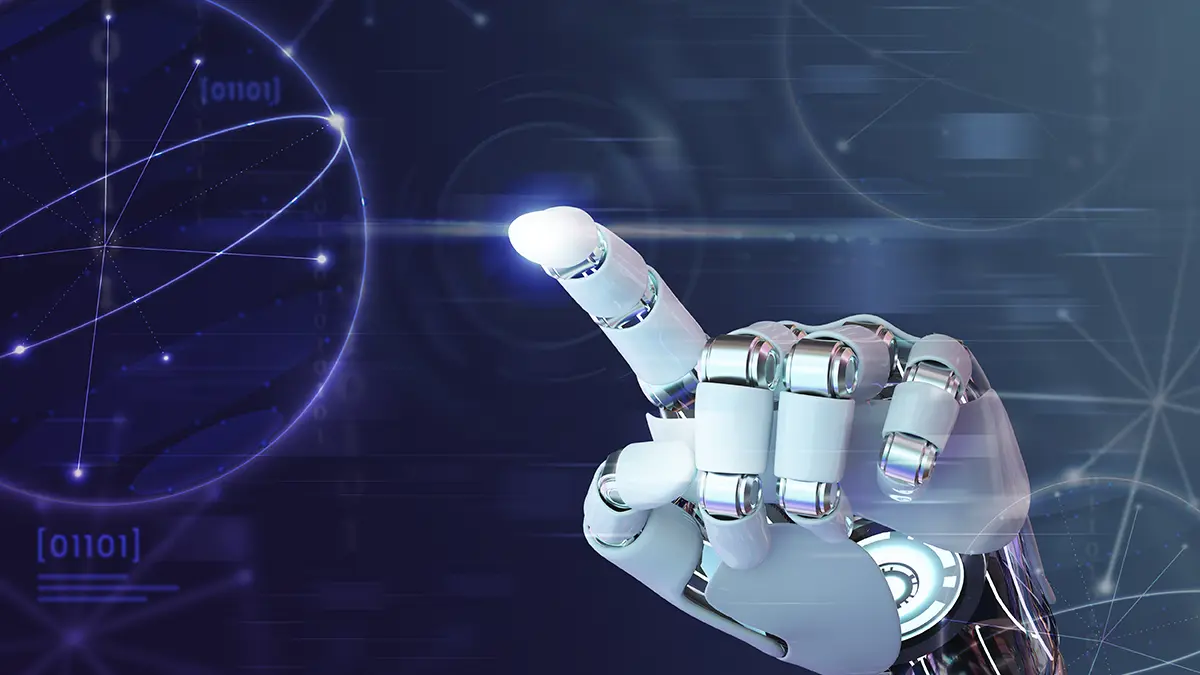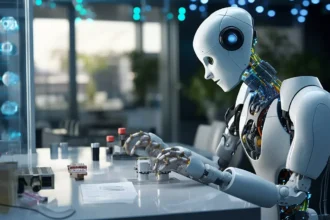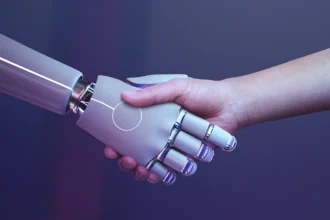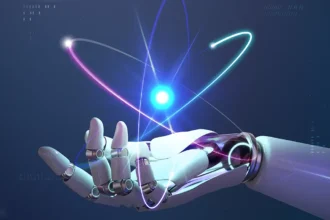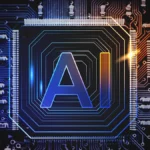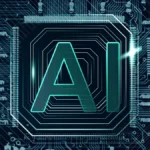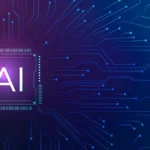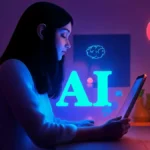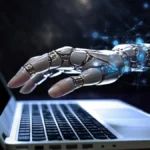Have you ever wondered how Artificial Intelligence (AI) is shaping the way we work? From automating tedious tasks to creating new job opportunities, AI has begun to transform the workplace in ways we couldn’t have imagined a few years ago. Whether you’re a student looking for internships, a professional interested in upskilling, or simply curious about the impact of AI on your career, this article is here to explore the exciting changes AI is bringing to the workplace.
In this article, we’ll dive into 8 impactful ways Artificial Intelligence is revolutionizing work life. By the end, you’ll have a clearer picture of how AI is not just a tool, but a transformative force that’s altering how we work, collaborate, and learn.
1. Automation of Repetitive Tasks
One of the most obvious ways AI is changing work life is through automation. Repetitive tasks that once consumed significant time and effort are now handled by AI-powered tools and systems. For example, data entry, scheduling, and simple customer inquiries can be automated, allowing employees to focus on more creative and strategic tasks.
Example:
- AI Chatbots in customer service departments can resolve routine queries, reducing the need for human intervention in common questions and concerns.
- AI-based software like Zapier automates workflows and connects various apps, allowing professionals to focus on high-value activities.
The automation of these tasks leads to higher productivity, faster decision-making, and less human error.
2. Enhancing Decision-Making with Data Insights
AI can process and analyze vast amounts of data at speeds no human could match. This enables companies to make data-driven decisions faster and more accurately. Whether it’s analyzing customer behavior or optimizing supply chains, AI is helping businesses unlock valuable insights that lead to smarter strategies.
Example:
- AI Analytics Tools like Tableau and Power BI use AI to visualize data and highlight trends, helping decision-makers make informed choices quickly.
The ability to leverage data in real-time has empowered professionals to drive innovation, refine business models, and anticipate market trends.
3. Job Creation in New Fields
While there’s concern about AI replacing jobs, it’s also creating new job opportunities. The rise of AI has given birth to entirely new industries and roles, from AI engineers to data scientists, ethicists, and trainers who work with AI systems to ensure they’re functioning as expected.
Example:
- AI Trainers work to ensure AI systems learn from correct, unbiased data.
- AI Ethics Consultants help ensure that AI applications are being used responsibly, ethically, and without causing harm.
These new job categories require specialized skills, leading to the rise of more educational programs, certifications, and apprenticeships focused on AI and related technologies.
4. Remote Work Enablement
With the rise of AI-powered communication tools and collaboration platforms, remote work has become more efficient and accessible. AI-driven platforms like Slack, Microsoft Teams, and Zoom are integrating AI features to help teams stay connected, streamline communication, and collaborate on projects—no matter where they are located.
Example:
- AI-powered transcription services (e.g., Otter.ai) automatically generate meeting notes, allowing employees to focus on discussion instead of documentation.
- AI project management tools such as Trello and Asana automate task tracking and management, ensuring projects stay on track even without physical office meetings.
For those working remotely or seeking remote internships, AI tools ensure that collaboration can happen seamlessly from anywhere in the world.
5. Personalized Learning and Development
AI is transforming how we learn and upskill in our careers. AI-based platforms are revolutionizing education by providing personalized learning experiences tailored to an individual’s skills, pace, and career goals. Whether you’re pursuing an internship, certification, or full-time job, AI can help you create a custom learning path to reach your professional goals.
Example:
- Coursera and edX use AI algorithms to recommend courses based on your learning history and career aspirations.
- AI-powered platforms like Duolingo use machine learning to adapt lessons to a learner’s proficiency, optimizing learning speed and retention.
AI enables professionals to enhance their knowledge with precision, offering an easy way to stay competitive in an AI-driven job market.
6. Improving Workplace Safety
AI is also making workplaces safer by predicting and preventing risks. In industries like manufacturing, AI systems can monitor equipment for signs of wear and tear, preventing accidents and reducing downtime. Similarly, AI can be used to track and analyze safety data, offering insights that help improve workplace safety protocols.
Example:
- Predictive maintenance systems can analyze machinery and equipment data to predict when a part might fail, reducing accidents and costly repairs.
- AI-powered surveillance systems in hazardous workplaces can monitor employee behavior and environmental conditions to ensure safety standards are being met.
As safety is a priority in every industry, AI is helping create safer work environments for employees, whether they work in a factory, hospital, or office.
7. AI-Driven Recruitment and Talent Management
Recruiting the right candidates for the job has always been a challenge, but AI is simplifying the process. AI-based recruitment tools are now capable of screening resumes, matching candidates with the right skills, and even conducting initial interviews, ensuring a more efficient and fair hiring process.
Example:
- AI-powered ATS (Applicant Tracking Systems), such as HireVue and Pymetrics, are helping companies screen resumes and assess candidates using objective data and predictive analytics.
- AI can also help with employee retention, identifying patterns that signal potential turnover and offering actionable insights to HR teams.
For job seekers and interns, AI is not only optimizing how companies hire, but also ensuring that resumes and applications are carefully evaluated for skills and experience.
8. AI in Customer Service and Support
Customer service has long been a staple of any business, but AI is enhancing how customer support is delivered. With AI chatbots and virtual assistants, businesses can provide 24/7 customer support while reducing the workload on human agents. These systems can answer routine questions, process transactions, and even resolve issues without human intervention.
Example:
- AI-powered chatbots like Zendesk and Intercom can answer customer queries instantly, improving response times and satisfaction rates.
- Virtual assistants such as Google Assistant and Amazon’s Alexa help businesses streamline their customer service processes, saving time and improving efficiency.
This shift is particularly beneficial for those working in customer support roles, as AI handles basic queries, allowing humans to focus on complex and critical issues.
READ MORE : 8 Best Artificial Intelligence Tools for Beginners
Conclusion
As we’ve seen, Artificial Intelligence is making profound changes to work life. From automating mundane tasks to creating new job opportunities, AI is reshaping the way we live and work. It’s clear that the future of work is intertwined with AI, offering new possibilities for workers and businesses alike.
Thank you for reading! Stay updated with the latest trends in AI, learning opportunities, jobs, and internships by joining our community through social media, push notifications, or newsletters. Stay ahead, stay informed.




